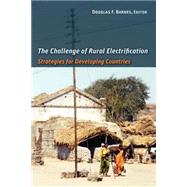
What is included with this book?
| Figures and Tables | p. vii |
| Preface and Acknowledgements | p. xi |
| Contributors | p. xv |
| The Challenge of Rural Electrification | p. 1 |
| The Cooperative Experience in Costa Rica | p. 18 |
| Power and Politics in the Philippines | p. 45 |
| Rural Poverty and Electricity Challenges in Bangladesh | p. 74 |
| Public Distribution and Electricity Problem Solving in Rural Thailand | p. 102 |
| From Central Planning to Decentralized Electricity Distribution in Mexico | p. 132 |
| Electricity and Multisector Development in Rural Tunisia | p. 163 |
| Rural Electricity Subsidies and the Private Sector in Chile | p. 198 |
| National Support for Decentralized Electricity Growth in Rural China | p. 225 |
| The New Deal for Electricity in the United States, 1930-1950 | p. 259 |
| Electricity for Social Development in Ireland | p. 293 |
| Meeting the Challenge of Rural Electrification | p. 313 |
| References | p. 329 |
| Index | p. 337 |
| Table of Contents provided by Ingram. All Rights Reserved. |
The New copy of this book will include any supplemental materials advertised. Please check the title of the book to determine if it should include any access cards, study guides, lab manuals, CDs, etc.
The Used, Rental and eBook copies of this book are not guaranteed to include any supplemental materials. Typically, only the book itself is included. This is true even if the title states it includes any access cards, study guides, lab manuals, CDs, etc.